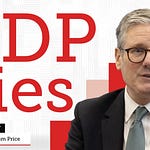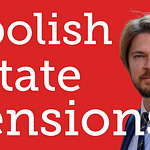In this Institute of Economic Affairs panel discussion, Dr. Kristian Niemietz chairs a conversation on "Government and Economic Growth in the 21st Century" with Dr. Stephen Davies, Senior Education Fellow, Julian Jessop, Economics Fellow, and Cento Veljanovski, IEA Law and Economics Fellow. The discussion examines Britain's 18-year period of economic stagnation since 2007, exploring why an entire generation has never experienced meaningful economic growth. The panel addresses the political consequences of zero-sum economics, where distributional conflicts have poisoned political discourse as politicians promise benefits without the growth needed to fund them sustainably.
The conversation covers the productivity puzzle affecting most Western economies, with Julian Jessop highlighting how Britain's debt could explode to 649% of GDP within 50 years without productivity improvements. Stephen Davies argues that politics has shifted from economic efficiency arguments toward identity-based divisions between nationalism and cosmopolitanism, while noting that most voters across the spectrum still expect government spending without corresponding taxes. The panel discusses the distortive effects of prolonged ultra-low interest rates and quantitative easing, which created zombie companies and asset price bubbles while encouraging fiscal complacency. Cento Veljanovski draws on Hayek's work to examine where the line should be drawn between market and state, arguing that liberalism faces an identity crisis in an era where big government is blamed on "neoliberalism" despite extensive state intervention since 2008.
The discussion concludes with debate over potential solutions, from radical reforms like abolishing central banks to addressing the "shadow public sector" of bureaucratic gatekeepers. The panel expresses pessimism about coalition-building with populist movements, suggesting that economic arguments alone may no longer be sufficient to advance liberal reforms in the current political climate.













